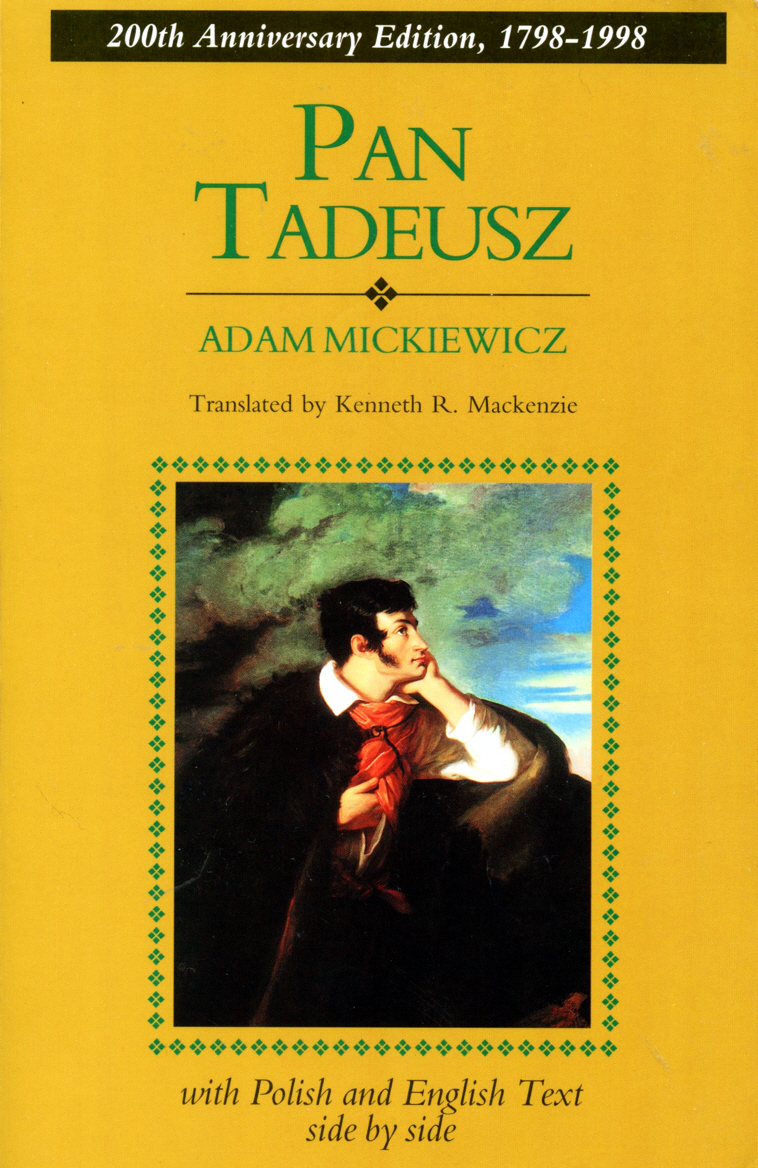
PAN TADEUSZ
The Last Foray in Lithuania
by Adam Mickiewicz
Roman Koropeckyj (University of California, Los Angeles): "Published in Paris four years after a failed uprising against Russia forced much of Poland’s cultural and political elite into exile, Adam Mickiewicz’s 1834 poem Pan Tadeusz [Master Thaddeus] is considered by Poles to be their national epic—and, arguably, “the only successful epic [the nineteenth century] produced” (Brandes, 284)....Pan Tadeusz is a foundational narrative about change and continuity, in which, as one of its early readers put it, “one can not only read [a nation’s] entire soul, but even recognize those everyday features […] that constitute passage from the generation of the dead to the generation of the living, bond it with the future, and bring forth from the grave the nucleus of a future life” (Stanisław Worcell to Mickiewicz, 7 November 1838, Listy, 392–93). And it is precisely Mickiewicz’s capacity to materialize those everyday features, to evoke in a poetic language of remarkable concreteness the colors, smells, and sounds of a provincial, backward world on the verge of extinction, with its bear hunts and tribunals, repasts and vegetable patches, gentry estates and Jewish taverns, petty quarrels and forays, that renders a seamless, “noumenal” tapestry, wherein nature constitutes the woof to society’s warp and where amid humor and pathos there is no room for winter. As yet another early reader of the poem proclaimed, in Pan Tadeusz “the Polish nation will never die” (Julian Ursyn Niemcewicz to Stefan Witwicki, 15 July 1837, Korespondencja, 70)."
VISIT THE PHC BOOK PAGE
for more information about the book
and books discussed in previous meetings
To register and for more information, please sent an e-mail to
This email address is being protected from spambots. You need JavaScript enabled to view it.






